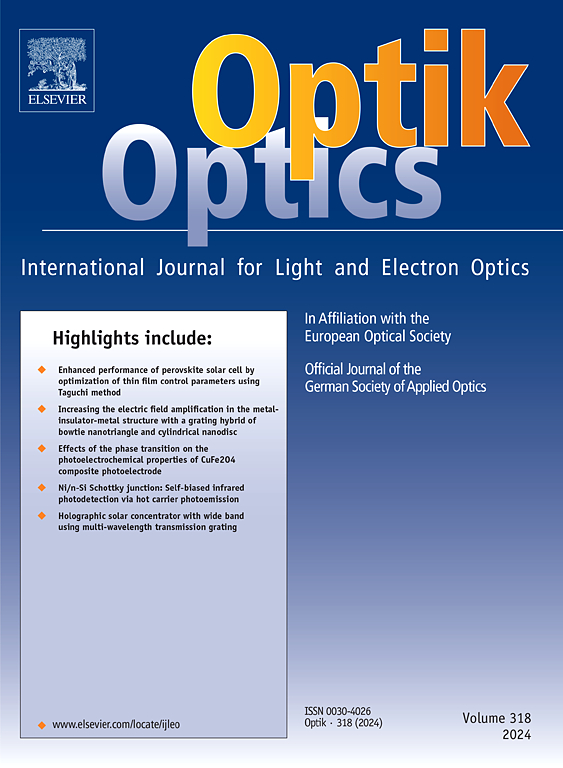镝掺杂LiCaPO4的剂量学性质
IF 3.1
3区 物理与天体物理
Q2 Engineering
引用次数: 1
摘要
我们通过传统的固相反应合成了镝掺杂的LiCaPO4样品,并评估了其光致发光(PL)、闪烁和剂量学性质。在紫外和x射线的照射下,样品显示出由Dy3+的4f-4f跃迁引起的发光。掺杂0.5%的样品得到了最高的PL量子产率(QY) 59.2%。掺量为0.5%的样品在闪烁和热激发发光(TSL)方面表现出最高的强度。在TSL剂量响应函数中,0.5% dy掺杂的LiCaPO4在x射线照射下呈现0.01 ~ 30 mGy的比例关系。TSL强度超过了商业产品。本文章由计算机程序翻译,如有差异,请以英文原文为准。
Dosimetric properties of Dy-doped LiCaPO4
We have synthesized Dy-doped LiCaPO4 samples by the conventional solid-state reaction and evaluated photoluminescence (PL), scintillation, and dosimetric properties. The samples showed luminescence which was attributed to the 4f-4f transitions of Dy3+ by irradiation of UV and X-ray. The highest PL quantum yield (QY) of 59.2% was obtained from the 0.5% Dy-doped sample. The 0.5% Dy-doped sample exhibit the highest intensity in scintillation and thermally stimulated luminescence (TSL) as well. In TSL dose response function, the 0.5% Dy-doped LiCaPO4 showed the proportional relationship from 0.01 to 30 mGy under X-ray irradiation. The TSL intensity surpassed the commercial product.
求助全文
通过发布文献求助,成功后即可免费获取论文全文。
去求助
来源期刊

Optik
物理-光学
CiteScore
6.90
自引率
12.90%
发文量
1471
审稿时长
46 days
期刊介绍:
Optik publishes articles on all subjects related to light and electron optics and offers a survey on the state of research and technical development within the following fields:
Optics:
-Optics design, geometrical and beam optics, wave optics-
Optical and micro-optical components, diffractive optics, devices and systems-
Photoelectric and optoelectronic devices-
Optical properties of materials, nonlinear optics, wave propagation and transmission in homogeneous and inhomogeneous materials-
Information optics, image formation and processing, holographic techniques, microscopes and spectrometer techniques, and image analysis-
Optical testing and measuring techniques-
Optical communication and computing-
Physiological optics-
As well as other related topics.
 求助内容:
求助内容: 应助结果提醒方式:
应助结果提醒方式:


